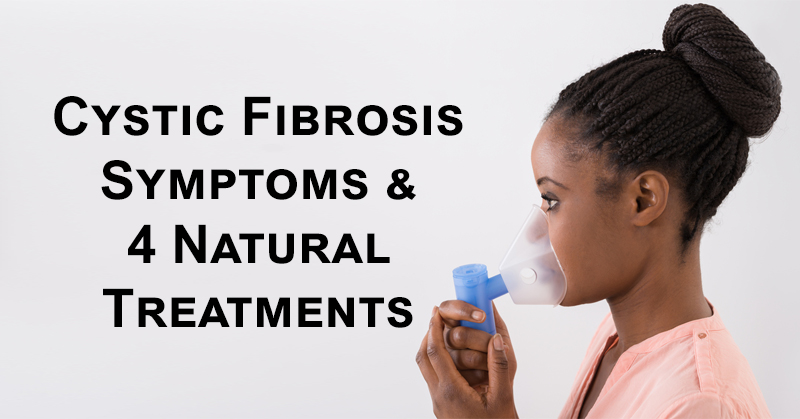Cystic fibrosis is a genetic disease that causes persistent lung infections. It progressively gets worse, limiting a person’s ability to breathe over time. Cystic fibrosis causes include a inherited defective gene which leads to a thick, sticky buildup of mucus in the lungs, pancreas and other organs. (1) This mucus causes bacteria to get trapped in the airways, leading to extensive lung damage and respiratory failure. Common cystic fibrosis symptoms include persistent coughing, frequent lung infections, wheezing or shortness of breath and digestive problems. (2) Natural cystic fibrosis treatments focus on early diagnosis, physical therapy and a diet high in beneficial nutrients.
Cystic Fibrosis Symptoms
- Nasal congestion
- Lung damage
- Chronic cough
- Asthma-like symptoms
- Repeated sinus and lung infection
- Trouble breathing or wheezing
- Developmental problems in infants and children
- Unintentional, sometimes dangerous weight loss
- Diarrhea, dehydration and electrolyte imbalance
- Digestive problems
- Chronic fatigue
- Long-term illnesses

Cystic Fibrosis Treatments
1. Early Diagnosis
While an early diagnosis cannot prevent cystic fibrosis causes, it can help patients learn to manage their symptoms before they get worse. The condition can be diagnosed in unborn babies, newborns and young children through genetic testing. (3) Cystic fibrosis treatments may include clearing the lungs of mucus, helping to prevent infections and starting a patient on a nutritious diet.
2. Dietary Intervention
Cystic fibrosis patients often experience nutrient deficiencies. It’s important to a consume a diet high in nutrients to make sure the body is getting enough vitamins, minerals and antioxidants. Unwanted weight is a common cystic fibrosis symptom. Eating a diet high in healthy fats and nutritious calories can help promote a strong metabolism and allow a cystic fibrosis patient to maintain a healthy weight. (4) Specific nutrients that are recommended for people with cystic fibrosis include:
- Vitamin K, D, A and E to prevent nutrient deficiencies
- Omega-3 fatty acids to lower inflammation
- Pancreatic enzymes to help the body digest food
- High-quality multivitamins and antioxidants to prevent inflammation and infections
- Probiotic supplements to improve digestion
- Anti-inflammatory foods such as extra virgin olive oil, avocados, walnuts, flaxseeds and coconut oil

3. Help with Breathing
Cystic fibrosis treatments include helping patients reach a better quality of life by improving breathing and lung capabilities. A bronchodilator can be used to help relax the muscles in the lung airways to stop inflammation from getting worse. (5) Devices known as oscillatory positive expiratory pressure can be used to help increase airflow to the lungs and break up mucus.
4. Physical Therapy
Breathing exercises and physical therapy can help reduce cystic fibrosis symptoms by dislodging mucus in the chest and airways to promote better breathing. Studies have shown that physical therapy in combination with gentle, appropriate exercise worked well in patients with cystic fibrosis to help reduce symptoms. (6)


